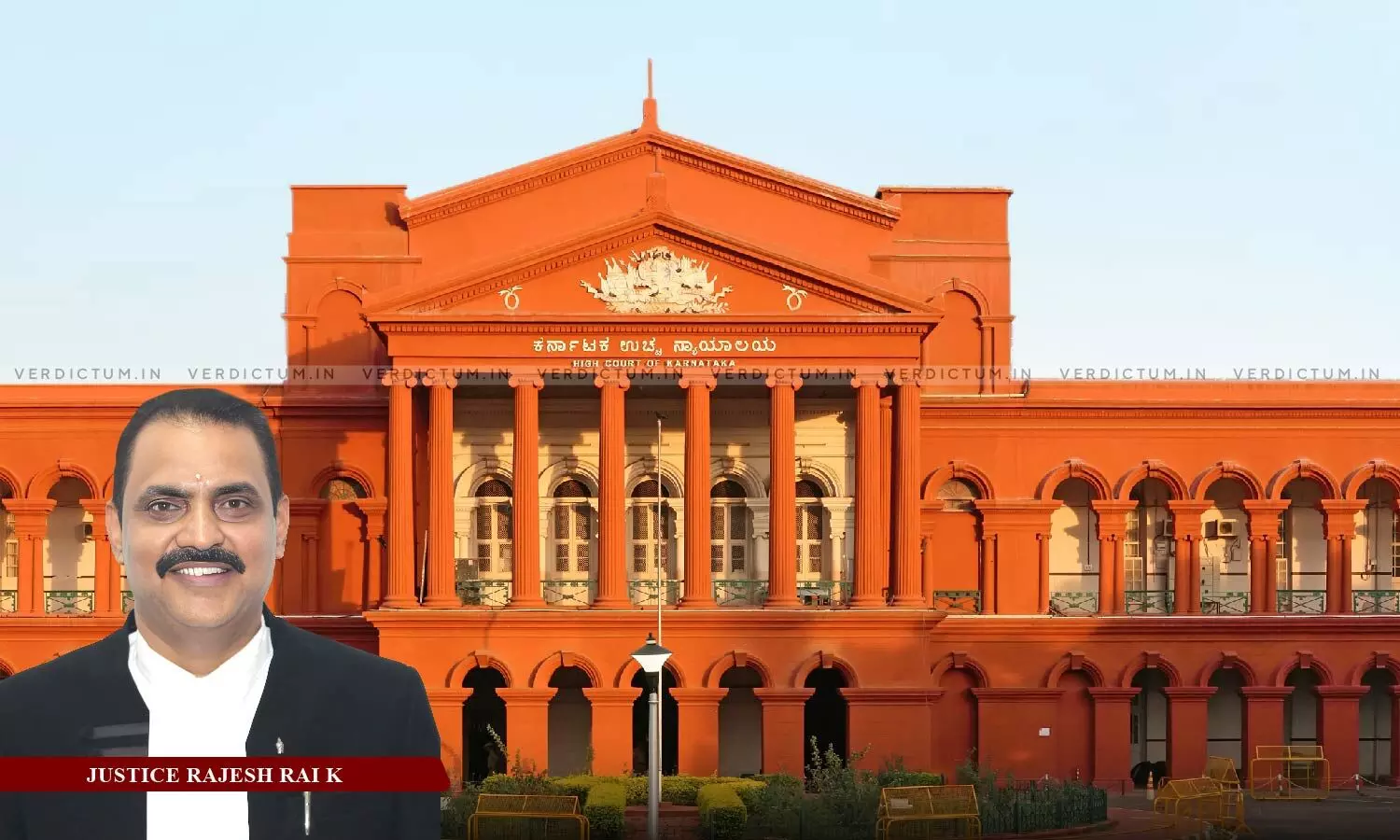
In Absence Of Substantive Evidence, Mere Recovery Of Tainted Money Is Not Enough For Conviction: Karnataka HC Reiterates
 |
|The Karnataka High Court recently reiterated that mere recovery of the tainted money, and dehors of the circumstances is not sufficient to convict an accused for an offence when the substantive evidence in the case is not proved.
The Court, accordingly set aside an order of a trial court for an offence under the Prevention of Corruption Act, 1988.
While referring to Babu vs. State of Kerala reported in (2010) 9 SCC 189, a bench of Justice Rajesh Rai K observed, “The presumption of innocence is a human right. However, subject to the statutory exceptions, the said principle form the basis of criminal jurisprudence. For this purpose, the nature of the offence, its seriousness and gravity thereof has to be taken into consideration. The Courts must be on guard to see that merely on the application of the presumption, the same may not lead any injustice or 44 mistaken conviction”.
Senior Advocate Arun Shyam appeared for the appellant and Advocate Venkatesh Arabhatti appeared for the respondent-Lokayukta.
In the present matter, the District and Special Judge at Chamarajanagara convicted the accused-appellant for an alleged offence punishable under Sections 7 and 13(1)d read with Section 13(2) of the Prevention of Corruption Act, 1988.
The appellant was working as Taluk Executive Officer of Taluk Panchayat at Yelandur.
The accused/appellant was to recommend names of certain beneficiaries under Dr.B.R.Ambedkar self employment scheme, which he agreed to comply on the alleged condition that they should pay a bribe of Rs.2,500/- each, totaling to Rs.10,000/- for doing the said official act.
It is pertinent to note that in the present case, the complainant himself turned hostile.
It was vehemently argued by the petitioner that the substantial evidence in the case was not reliable, and without evidence to prove payment of bribe or to show that the money was taken voluntarily as bribe by the accused, then the provisions under Sections 7 and 13 of the Act would not attract.
Furthermore, while invoking the provision of Section 20 of the Act, the Court is required to consider the explanation offered by the accused only on the touchstone of preponderance of probability and not on the touchstone of proof beyond all reasonable doubt.
Therefore, after considering the submissions made and the nature of evidence, the bench thus observed, “It is the golden thread runs through the web of criminal justice system that if two views are possible, the favorable view has to be considered in favour of the accused. Hence, in my considered opinion, the prosecution failed to prove the guilt of accused beyond reasonable doubt. Accordingly, the conviction held against accused by the trial Court is liable to be set-aside”.
The bench also referred to Narendra Singh and another v State of Madhya Pradesh (2004) 10 SCC 699 to note that suspicion, however, grave may be, cannot take the place of proof and that there is a long distance between “maybe” and “must be”.
Cause Title: B.V. Ramesh v. State of Karnataka
Click here to read/download the Judgment